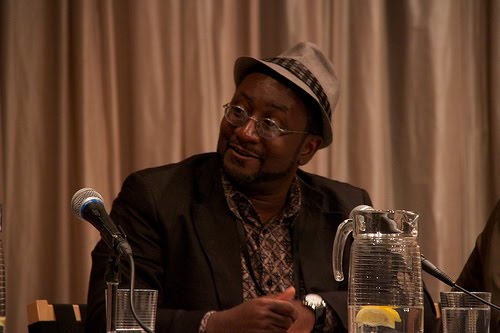Fun, Fun, Fun in Babylon.
__________________________
“Casino bosses transform Sin City into Club City”
LAS VEGAS -- To step into club XS at the Wynn Las Vegas is to enter the dreamscape of a modern artist with fetishes for gold and bronze and bodies in motion.
A golden-plated frieze made from casts of nude women sits atop a shimmering staircase. Waves of electronic dance music grow louder with each downward step toward a pulsating, football field-sized club where lasers cut the air above thousands of dancers.
The revelers take their cues from the famous DJs onstage who are known to surf the crowd in inflatable rafts, throw sheet cakes at clubbers’ faces and spray vintage champagne into their mouths.
In Sin City, where over-the-top is always the sales pitch, lavish nightclubs featuring a heart-pounding party have become the backbone of a billion-dollar industry that is soaring while gambling revenue slips.
“We learned a long time ago that in order to continue to attract people from around the world, we have to provide things that are hard to find anywhere else,” said Jim Murren, CEO of MGM Resorts International, which operates nine Strip hotel-casinos boasting their own dance scenes. “These clubs, if done correctly, are tremendous magnets.”
A $100 million temple to revelry, XS is the top-earning nightclub in the country, joining six other Vegas venues in the top 10. Its estimated annual revenue hovers somewhere near $90 million, according to the trade publication Nightclub & Bar.
The city now boasts more than 50 such clubs. New additions are coming all the time, including the five-story Hakkasan at the MGM Grand, which debuted last month, and Light at Mandalay Bay, Cirque du Soleil’s first foray into the disco business, opening Memorial Day weekend.
The rise of the Vegas super-club coincides with the decline of the town’s gambling supremacy. The tiny Chinese enclave of Macau surpassed the desert oasis as the world’s top gambling destination in 2006. Singapore is on track to claim the No. 2 spot.
During the heart of the recession, when overall Strip revenues tumbled by 16 percent, nightclubs saw more profit than ever. By 2011, Las Vegas was clubbing all the way to the bank, with Strip beverage departments earning more than $1 billion. Casino tycoons began remaking the Strip into the club capital of the world.
With extravagantly paid DJs, larger-than-life venues and billboard ads that stretch beyond the Strip to Hollywood Boulevard and Miami, casinos are trying to pull off a tricky balancing act: keeping the kitschy core that draws older generations while finding a way to make the city hip enough to attract a younger, big-spending set — emphasis on big-spending.
“We’re not interested in competing against everyone to get the 21-year-olds that are going to spend little to no money and are going to clog up the hallways,” Murren said.
The 10-minute taxi ride from the airport to the Strip takes visitors past dozens of billboards promoting top DJs from Holland and beyond. Celine Dion and Elton John now take their place on marquees alongside names that recall Internet handles, such as “deadmau5” and “Kaskade.”
Las Vegas, long known for catching performers on the downswing of their careers, finally appears to have embraced a musical trend at the height of its popularity. Globe-trotting Dutch DJ Afrojack, 25, said he has come to consider the Strip his home because it’s the one place he believes is as dance-music-focused as he is.
By HANNAH DREIER
(Associated Press)

No comments:
Post a Comment